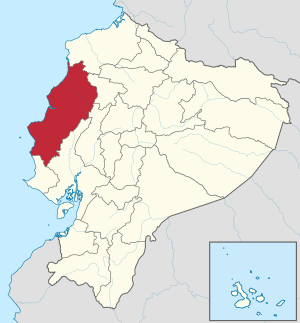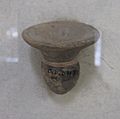Bahía culture facts for kids

Location of the Bahía culture
|
|
| Geographical range | Manabí |
|---|---|
| Period | Regional Development |
| Dates | 500 BCE – 500 CE |
| Preceded by | Chorrera culture |
| Followed by | Manteño civilization |
The Bahía culture was an ancient civilization that lived in what is now Ecuador a very long time ago, between 500 BCE and 500 CE. This means they existed for about 1,000 years! They were part of the many amazing cultures that lived in the Americas before Christopher Columbus arrived.
Contents
Where the Bahía People Lived
The Bahía culture started in a place called the Manabí Province on the Pacific Coast of Ecuador. From there, their influence spread. They reached areas like Bahía de Caráquez and even into the lower parts of the Andes mountains. Imagine a culture spreading from the warm coast up towards the cooler mountains!
Their Amazing Pottery
The Bahía people were very skilled artists, especially with clay. Their unique style of pottery is one of the first and most important found north of the Andes mountains. They created many different kinds of ceramic objects, from everyday pots to special figurines and ceremonial items.
What We Know About Their Lives
Archaeologists, who are like history detectives, have learned a lot about the Bahía culture by studying their ancient sites.
Chirije: A Busy Seaport
One of the most important places where the Bahía people lived was a seaport called Chirije. This site was discovered by a researcher named Emilio Estrada in the 1950s. Chirije was a very busy place, like a big trading hub.
Trade and Travel
The Bahía people were excellent traders. They exchanged goods with other cultures far away. They traded things they made, like pottery, and also special red spiny oyster shells called Spondylus princeps. These shells were very valuable and were used in ceremonies or as a form of money.
They sent their goods south to places like Chile and north all the way to Mexico. In return, they received precious materials such as copper and gold. This shows they had a wide network of trade routes, connecting them to many different parts of ancient America.
 | Charles R. Drew |
 | Benjamin Banneker |
 | Jane C. Wright |
 | Roger Arliner Young |






